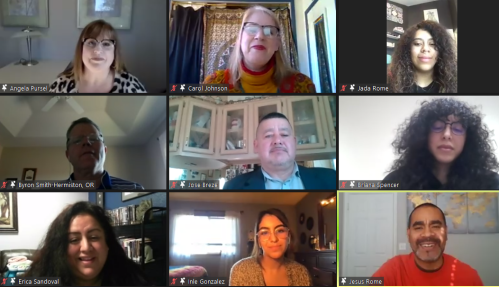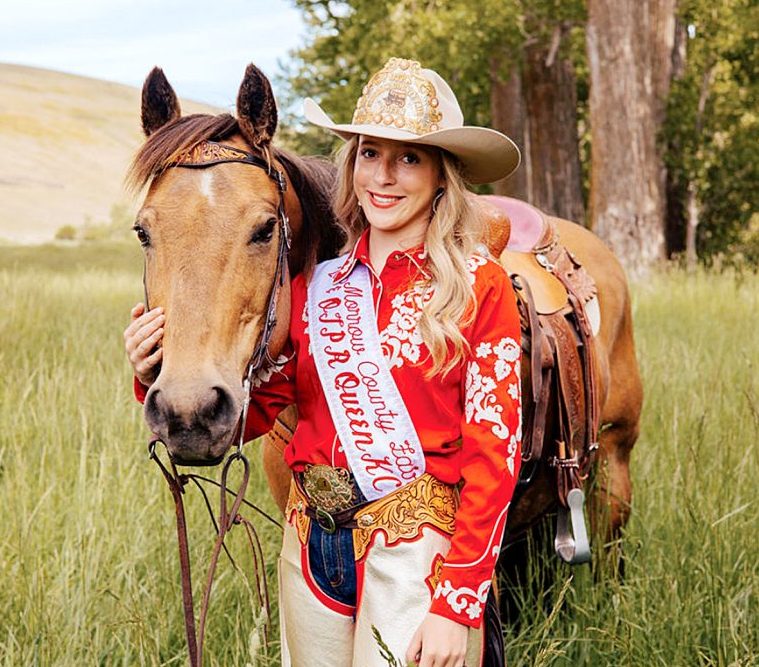Umatilla County residents discuss racism in MLK day panel
Published 3:00 pm Tuesday, January 19, 2021

- Participants take part in a virtual panel on race in observance of Martin Luther King Jr. Day on Monday, Jan. 18, 2021.
HERMISTON — Progress toward true equality can’t happen without conversations about race, members of a panel for Martin Luther King Jr. Day agreed.
The virtual panel was hosted on Monday, Jan. 18, via Zoom by the Hermiston Cultural Awareness Coalition and moderated by Angela Pursel of KOHU/The Q radio.
Trending
As they discussed what steps the community can take toward fulfilling King’s vision, many panel members said conversations about topics, such as privilege and institutional racism, can be difficult, but such conversations are how people learn and change.
“It makes people uncomfortable, but the more we talk about it the more people will understand, because education is power,” Hermiston High School student Jada Rome said.
Rome said as a person of color, she knows there can be pressure to just “brush it off our shoulders” when experiencing instances of racism, but doing so can send the wrong signal that what happened was OK or not a big deal.
Erica Sandoval, an officer with Hermiston Police Department, said some of the hardest conversations about race can be the reflections people have with themselves. While she feels positively about the Hermiston community and her experiences there overall, she said there is always more work that can be done in eradicating biases.
“I think it’s a personal journey to reflect on what we have to offer to that common goal,” she said.
Jose Garcia, chair of Hermiston’s Hispanic Advisory Committee, said he is proud to be able to represent Hermiston’s Hispanic residents in an official capacity with the city, and he appreciates the work that has been done to be more inclusive. However, he said that doesn’t mean there isn’t still work to be done.
Trending
He shared a recent personal experience where he noticed that a cashier at a local business did not check to see if a $100 bill used by a white customer ahead of him was counterfeit, but carefully checked the $100 bill he paid with.
Hermiston City Manager Byron Smith said he has spent the past year studying how racism happens, not just on a personal level but on a structural, institutional level, and understanding that is an important step.
“We have to get to that point where people are ready to face and acknowledge and deal with some very difficult things that are involved in institutional racism,” he said.
Carol Jeffery-Hoague, of the Hermiston Cultural Awareness Coalition, when asked about the “next courageous step” the community can take, said while there are institutional changes that need to happen, one way that happens is when individuals recognize the privileges they may have been afforded by the current system.
“We want our communities to move forward but communities are made up of individuals, and I think it’s going to require individuals, all of us, to take stock of ourselves and our thinking, to have some humility and kind of own our privilege,” she said.
Inle Gonzales, a Hermiston High School student, said the way to success for everyone is to work together for the common good rather than seeing progress for others as a threat to oneself.
History does repeat itself, she said, unless people learn from that history and take action to prevent the same mistakes from being perpetuated.
“You can’t erase history. You can’t. What’s done is done,” she said. “It’s asking yourself how are we going to move forward — what are we going to do — rather than just seeing that as an event in the past, because it’s a lesson.”
Briana Spencer, of the Confederated Tribes of the Umatilla Indian Reservation, said her activism over race has at times come with consequences, including death threats, so she understands that “not everyone is made for the front lines.” But people who don’t feel comfortable taking a leadership role or marching in protests can still take steps in their own lives, she said, such as donating to organizations or having conversations about racism with family and friends.
She said part of activism is being positively involved in the community, and pointed to examples, such as a canned food drive for charity at a recent local protest.
“As soon as people start seeing this, and they start noticing that we’re not just here to tell them that they’re wrong, we’re here to help support the community, that we want the community to be better, that’s how we bridge that and get that communication,” she said.
A video of the panel will be posted on www.gohermiston.com.









